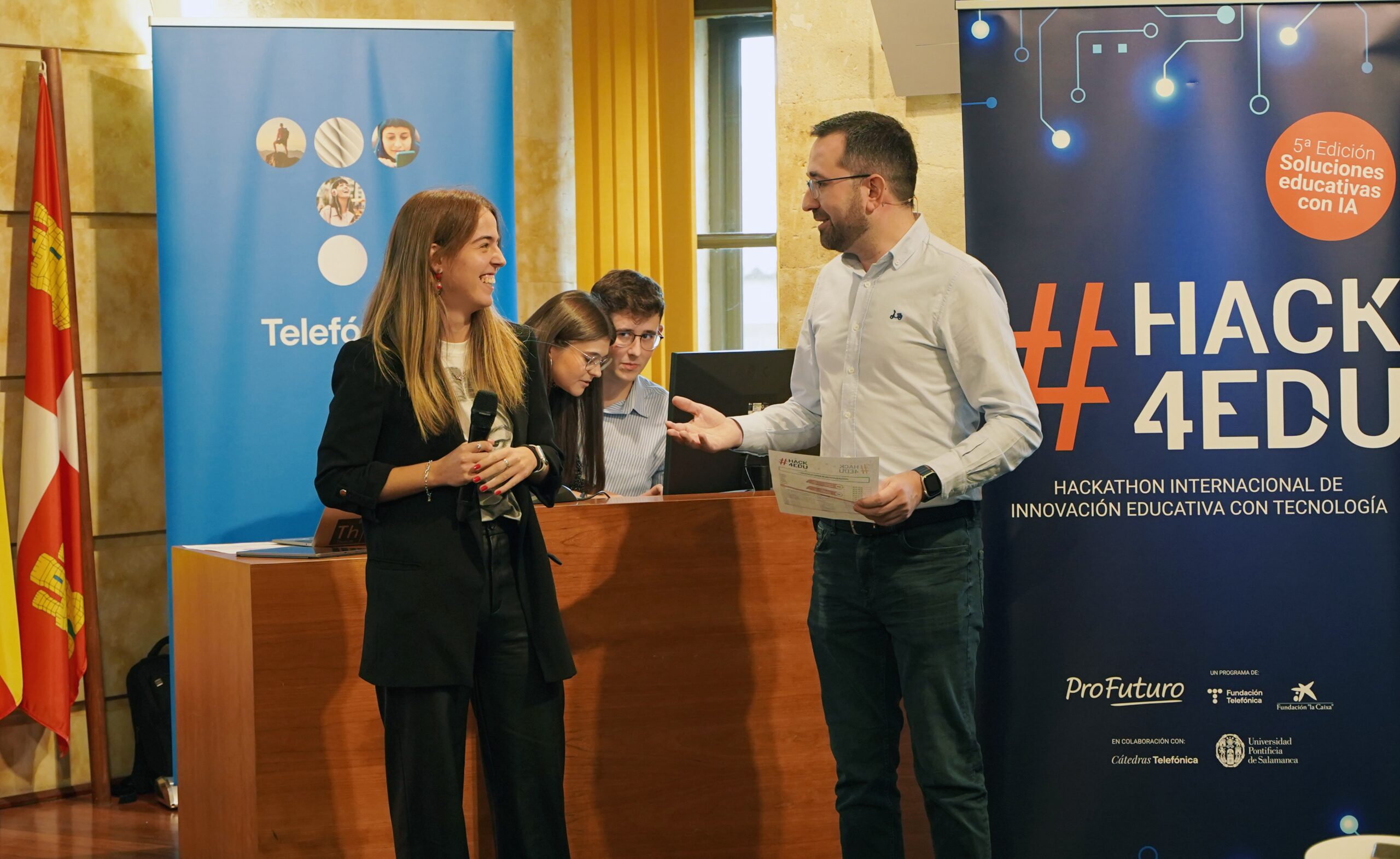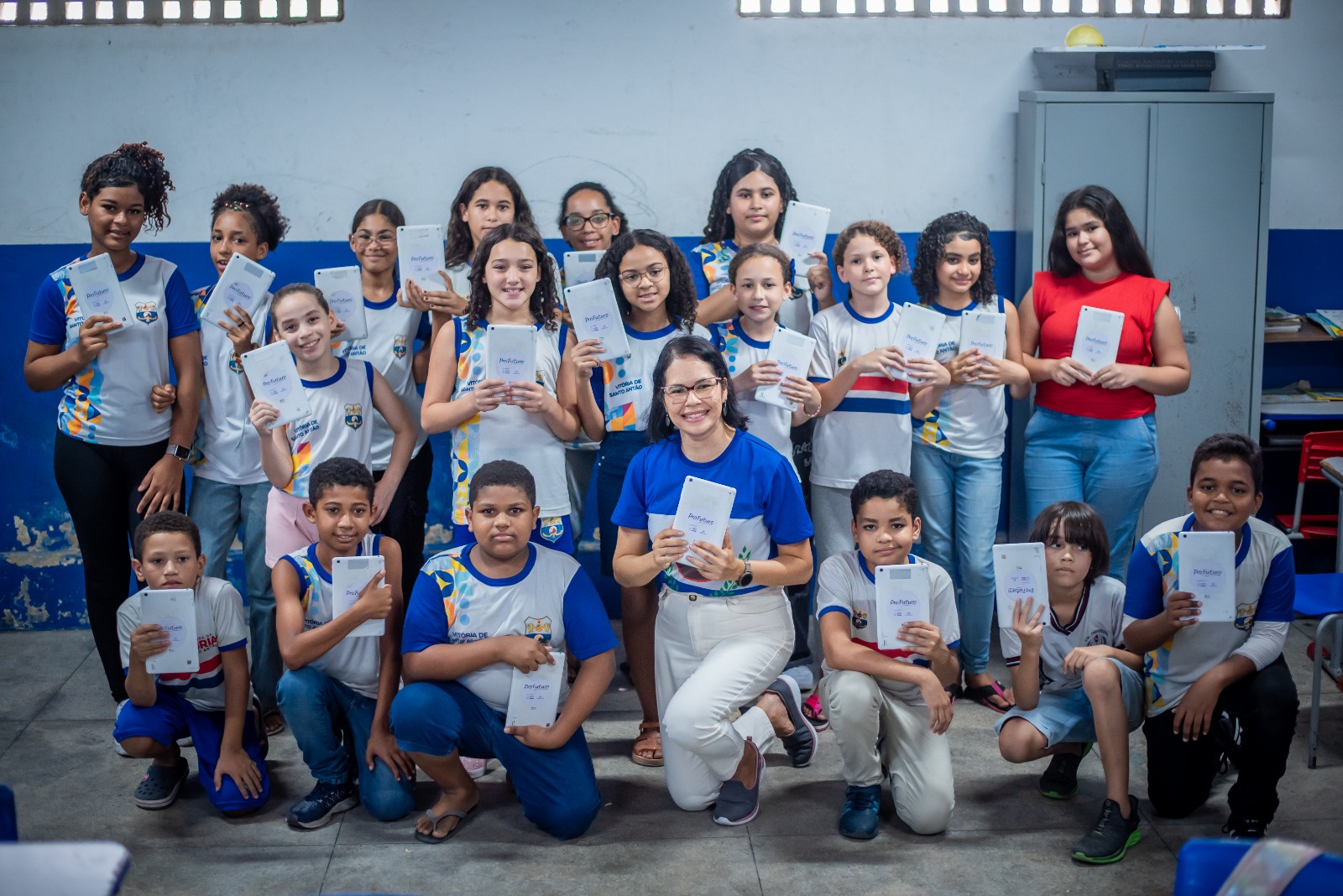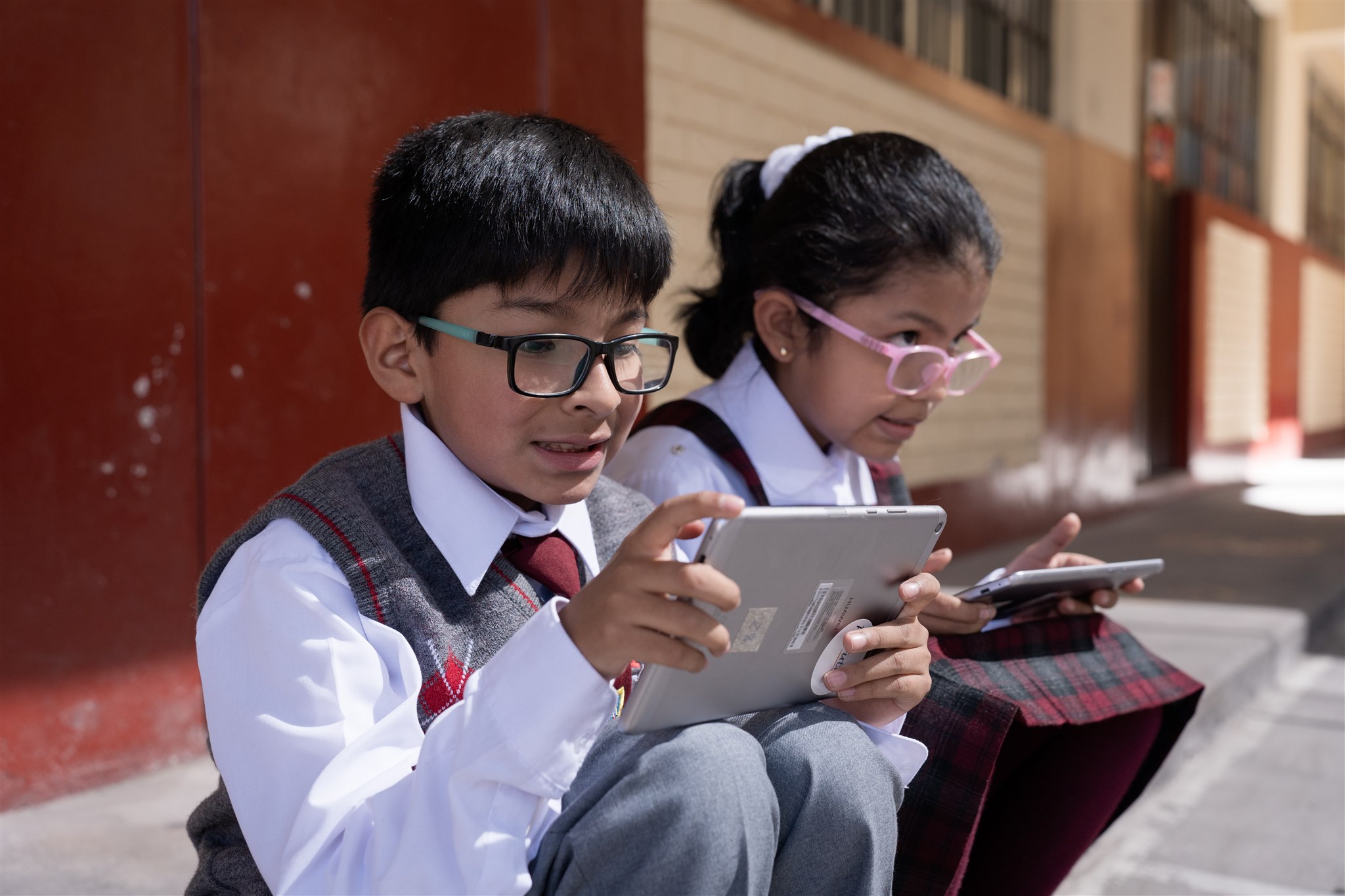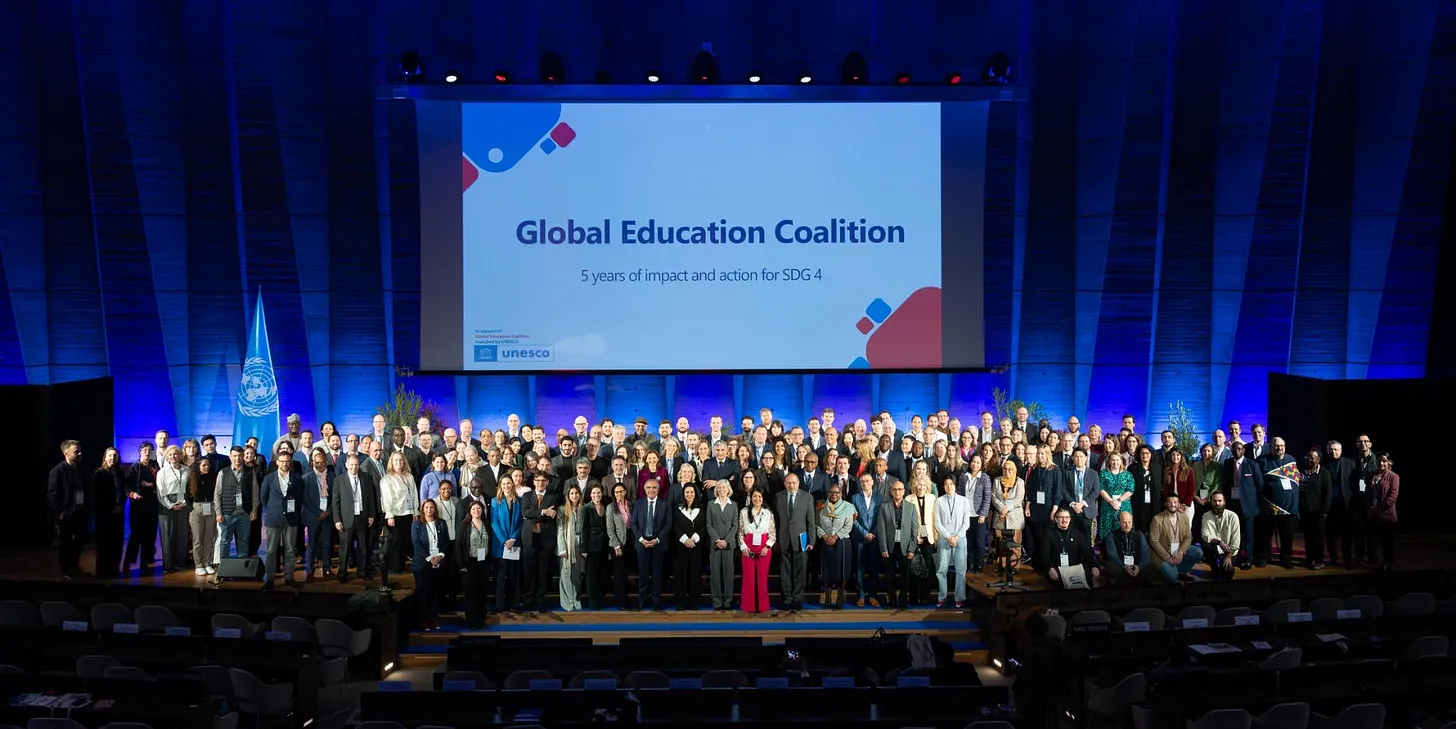In the last week of October we had hack4edu, the biggest educational hackathon in Ibero-America dedicated to digital education, with a focus on artificial intelligence. It was held from 21 to 25 October 2024.
This edition surpassed the figures of previous ones, with more than 630 hackers from 28 universities from 12 countries, such as Spain, Mexico, Venezuela, Brazil, Panama, Portugal, Uruguay, Colombia, Italy, Ecuador, and Peru. For 72 hours, the participants worked on solving 72 technological challenges related to digital education in vulnerable environments.
This initiative stems from ProFuturo, the digital education programme of Fundación Telefónica and “La Caixa” Foundation, in collaboration with the Pontifical University of Salamanca (UPSA), and with the support of the Telefónica Chairs Network. See here for a day-by-day account of the proceedings.
21 October, opening session
The opening ceremony of #hack4edu was held at the UPSA main campus in Salamanca. Among the contributors were Ana María Fermoso, Vice-Rector for Research and Transfer of the UPSA; Beatriz Herranz Casas, Central Territory Head of Telefónica Spain (online); Manuel José Ruiz García, Manager of Big Data and Artificial Intelligence at ProFuturo; Manuel Martín-Merino, Director of the Telefónica Chair of the UPSA; Sergio Alonso Rollán, Professor of the Faculty of Computer Science of the UPSA, together with two former participants of the hackathon who spoke about their previous experiences.
Ana Fermoso stressed the importance of education to help deprived regions escape from poverty, an education “whose social orientation is aligned with the goals of our University”, and also underlined the need for this initiative, because “it is the first hackathon that encourages the participation of senior research groups and promotes the transfer and subsequent development of prototypes so that in the future they can be reused and exploited if necessary, both inside and outside the Foundation, also given their orientation to solve real social and educational problems and challenges.”
Participants discussed the significant importance of participating in these events, which succeeded in connecting with students of different fields of study and countries around the same goal, to contribute to quality digital education through technology and AI.
You can view the full opening ceremony here:
Networking session on Slack
At the end of the opening, the first networking session was held with the presentation of the selected challenges, the required profiles and the configuration and registration of the teams. Since this is a hybrid event, a Slack channel was set up to facilitate communication and coordination between teams in different countries and their time zones.
The hackers were assigned a team of Telefónica volunteers to advise and support the groups in the development of their prototypes and projects. Although the students had complete autonomy in their creations, they were guided by professionals to maximise the potential of their ideas.
22 and 23 October: team work sessions
Those with junior and senior profiles, mostly university students in STEM courses and professionals in multiple fields such as education, computer science, teaching methodology, communication, business and psychology, mixed and interacted to enhance the creativity and innovation of the teams.
The teams worked in a hybrid way, with the physical headquarters of the UPSA and the digital channel in Slack. All participants were able to have the same opportunities and times to develop their prototypes and presentations to the panel of judges.
24 October, project presentations
The teams presented the ideas they had worked on throughout the hackathon, and the review of winning and classified projects was carried out at each local head office. The organisation reviewed each finalist project, documentation, and members, sending them to the final.
25 October: project presentations and prize-giving
On the final day of the hack4edu hackathon, the short-listed projects were presented and the hackers presented their technological solutions to the chosen challenges to improve digital education through artificial intelligence.
The presentation of the 45 projects was done in a hybrid way: the teams from the Spanish universities presented their work at the UPSA main campus, where the panel of judges was also present, and the rest of the teams presented their work via Teams. It was an intense but very interesting day, with an increasingly high level of projects, which made the final decision all the more difficult.
Winning projects of this 5th edition
There were 6 prizes for participants in hack4edu, divided into two categories: Innovative and Senior. The Telefónica ProFuturo-UPSA Chair awards three prizes worth €1,500, €1,000 and €700 to the three best projects in the Innovative category and three more prizes worth €2,000, €1,500 and €700 in the Senior category. In addition, a prize is awarded to each institution that consists in the publication of two research articles by Springer.
Prize-winning projects
Innovative Category
- First Prize: PixelMAI
- University: Technological University of Nezahualcóyotl (Mexico)
- Description: Application for the creation of educational activities with Minecraft and AI, which aims to create a gamified learning environment.
- Second Prize: HUANUCO
- University: SENATI Higher Vocational Education and Training Centre (Peru)
- Description: A tool that uses AI to analyse students’ facial expressions and body language, detecting emotions to help teachers.
- Third Prize: BlinkMouse
- University: Francisco José de Caldas District University (Colombia)
- Description: A system that enables interaction with the computer mouse through eye movement, designed to help people with disabilities.
Senior Category
- First Prize: Hack4Minecraft
- University: University of Salamanca (Spain)
- Description: An app that combines Minecraft with AI to support learning in the classroom, creating a gamified learning environment.
- Second Prize: Edutech
- University: Technological University of Panama
- Description: Platform to teach mathematics to visually impaired students, using AI for tutoring.
- Third Prize: E-WASTE
- University: Engidea (Venezuela)
- Description: A robot that cleans and recycles e-waste, empowering students to create sustainable solutions.
Local Prize
- Project: LearnHack
- University: Pontifical University of Salamanca (Spain)
- Description: Accessible and personalised educational platform for students with special needs, tailoring content to different abilities.
See the grand final here:
The transforming power of education
#hack4edu is an event that, since 2020, has opened an international space for young minds to use their knowledge and skills to build the future. Education is the most powerful tool for transforming lives, empowering people with knowledge, skills and the ability to think critically. The digital environment offers opportunities, broadens horizons and enables informed decision-making, making a significant contribution to society.
Personal growth and collective progress are possible if, and only if, we create these kinds of spaces that transform through education. To all participants, thank you for being part of the community that believes in the transforming power of education!
To those who have just learned about the initiative, are you ready to participate in the next edition?
Other hack4edu news:
- The 5th edition of hack4edu is here: boosting innovation in digital education with AI
- Launch of the 5th #hack4edu: educational innovation and AI
- Do you want to know how to become a hacker to boost educational innovation?
- hack4edu, the largest educational hackathon in Latin America, kicks off
- From emotion-sensing apps to the educational use of Minecraft: the winners of the 5th edition of #hack4edu
More information available at: https://profuturo.education/hack4edu/
X: @ProFuturo_
IG: @profuturo_
FB: @ProFuturoEducation
YT: ProFuturo






